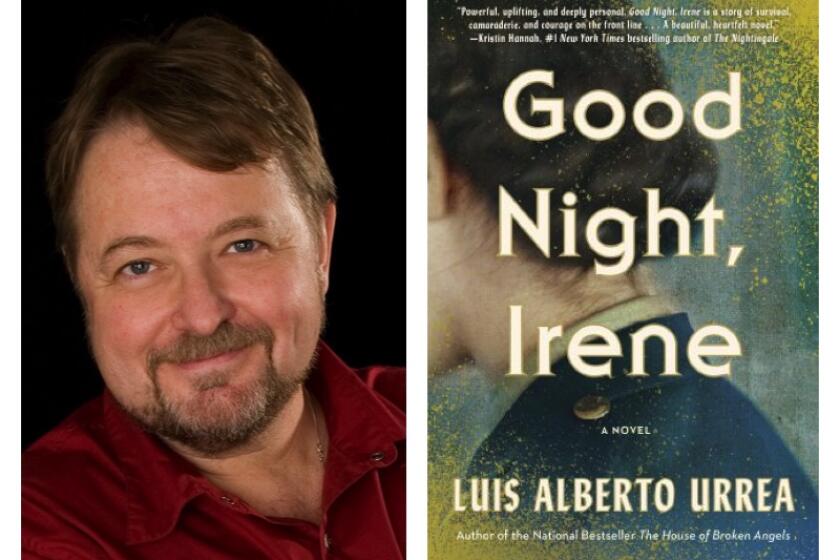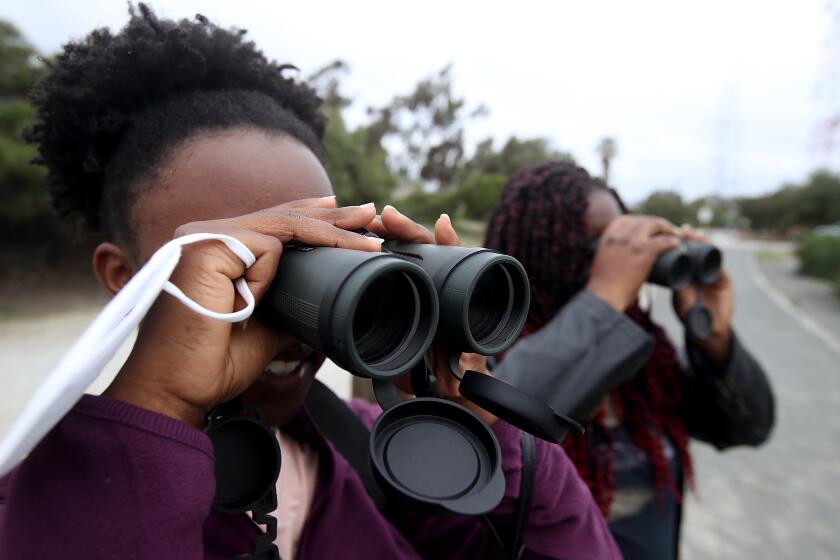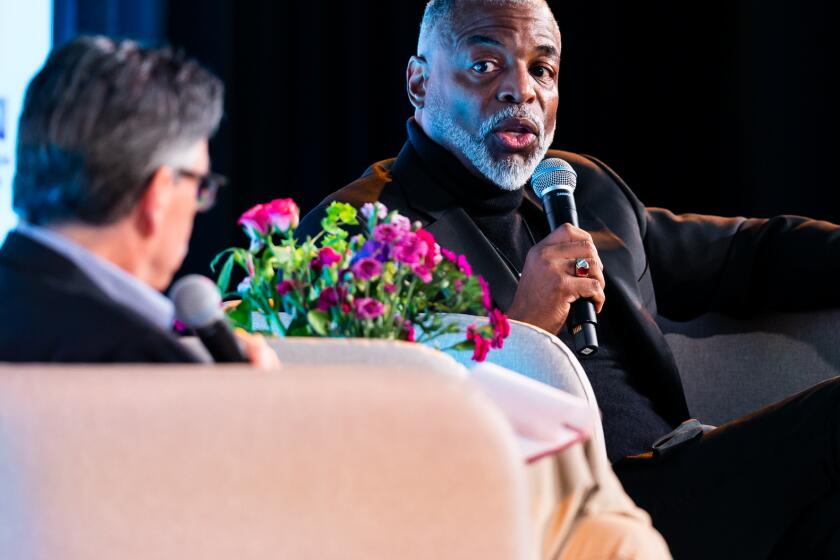How Christian Cooper turned one of the worst days of his life into a megaphone for inclusion and the joy of birding
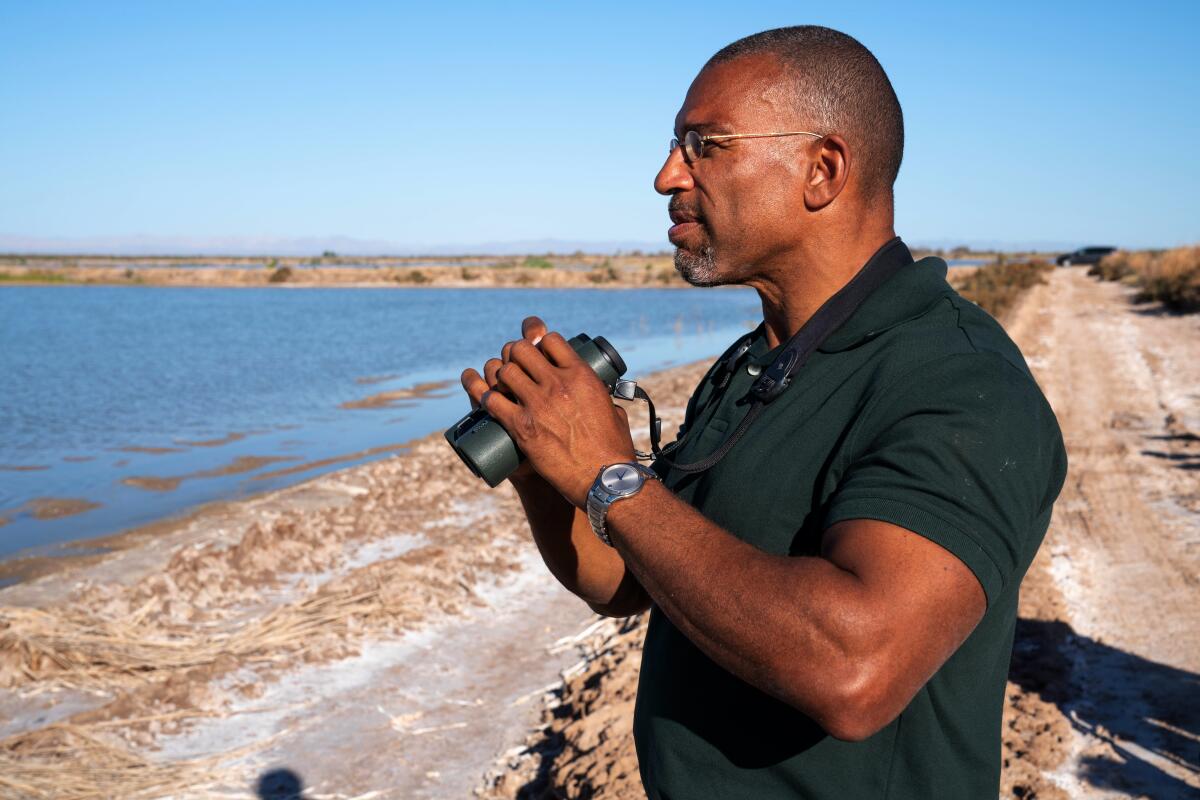
- Share via
Christian Cooper, the Central Park Birder, never intended for any of this to happen. When his video went viral after a racially charged encounter with a dog walker in the park’s Ramble, Cooper’s first instinct was to “crawl under a rock,” he says.
But by the end of that tumultuous week in May 2020, Cooper made the decision to embrace his unexpected fame. “I realized there was an opportunity here to keep doing the things I’d always been doing, but doing them on a bigger stage, a bigger platform, and reach more people,” he says in an interview.
Three years later, he has arrived on that stage, with a buzzy new memoir and a National Geographic TV show he hopes will attract more people of color and diverse backgrounds to the world of bird-watching.
Cooper joins the L.A. Times Book Club on Aug. 16 for a conversation about “Better Living Through Birding: Notes From a Black Man in the Natural World,” which tells the story of his life up to and since that fateful Central Park meeting, interspersed with practical birding tips and mini-essays on the pleasures of birding.
The show, “Extraordinary Birder With Christian Cooper,” debuted in June after a year of production in locations including Southern California, Hawaii, Puerto Rico and Alabama. The six-episode season is available for streaming on Disney+ and Hulu.
Cooper, a self-described “gay Black nerd with binoculars,” grew up on Long Island, the son of two public school teachers, and discovered birding at an early age when he thrilled to the brilliant patch of color on a red-winged blackbird. His father, a science teacher, encouraged Cooper to attend bird walks organized by the local Audubon Society chapter, and a lifelong love affair with feathered friends was hatched.
While Cooper writes that his parents could be difficult, they instilled in him and his sister a love of nature on summer camping trips, when they piled into a Volkswagen Westfalia camper van with the family’s English cocker spaniel, Spanky, bound for far-flung destinations like Maine and Canada’s Banff National Park.
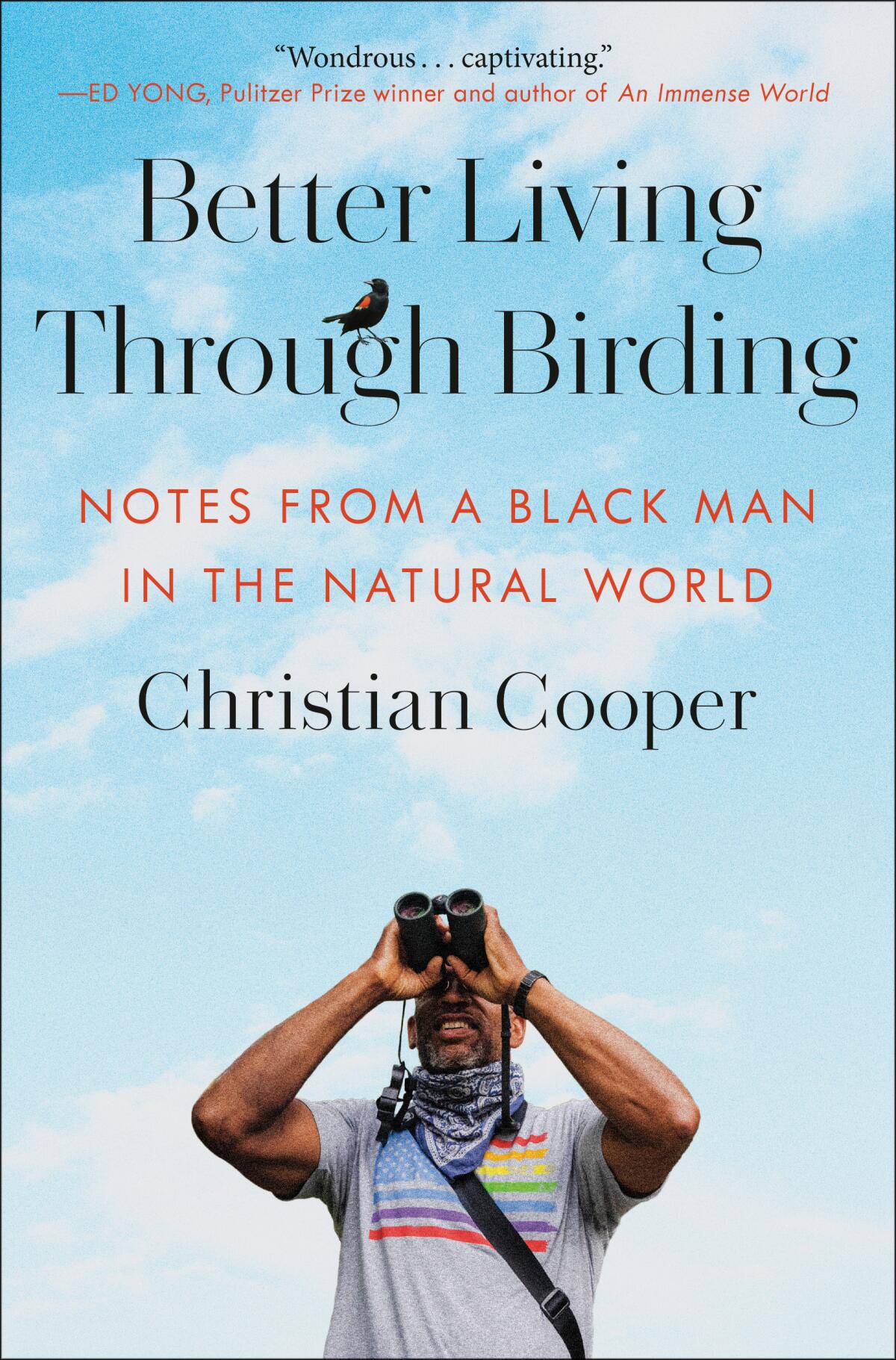
Cooper’s parents, veterans of the civil rights movement, also passed down a reverence for the sanctity of human rights. Two decades before the Central Park incident, father and son were arrested together at a protest over the death of Amadou Diallo, an unarmed African immigrant shot to death by plainclothes police officers outside his apartment building. As the protesters awaited processing in a police holding cell, Cooper was amazed to hear his father leading the detainees in a series of spiritual songs.
“It was programmed from birth,” Cooper says. “It’s just the way me and my sister were raised. You don’t let other people trample all over your rights.”
In a 69-second video that has been burned into the national consciousness, Cooper recorded his encounter with a white woman named Amy Cooper (no relation), as she refused to put her dog on a leash and then called 911 to report “an African American man threatening my life.” Initially, Cooper posted the video on his Facebook page as a way to bear witness to close friends, including a tight-knit circle of Central Park birders. It was his sister, Melody Cooper, who posted the video to Twitter, where it quickly racked up tens of millions of views.
“I wanted my brother’s calm bravery, in the face of a threatening and cowardly act, to be seen,” she wrote in a New York Times op-ed piece. “I wanted to shine a light not just on one person, but on the systemic problem of deep racism in this country that encourages her kind of behavior.”
The video took on added significance as another recording surfaced, made that same day in Minneapolis. This one was nine minutes long, showing a police officer using his knee to crush the life out of a Black man named George Floyd. As that incident triggered a long summer of protest, Cooper’s video continued to have its own impact, sparking discussion about racial bias, white privilege and the power of social media to expose stories of injustice.
On July 19, author Luis Alberto Urrea discusses his bestselling historical novel “Good Night, Irene” with the L.A. Times Book Club.
Cooper tells the story of his encounter toward the end of the memoir and explains his decision, controversial in some quarters, not to cooperate with the prosecution of Amy Cooper for filing a false police report. His reasoning? Her life “had already imploded,” and criminal charges “seemed like piling on.” Charges ultimately were dropped after Amy Cooper completed an educational program on racial bias.
Meanwhile, Chris Cooper was eager to get back to what he was doing that morning in the Ramble: birding. His instant status as perhaps the most famous birder in America launched him on a new trajectory, and soon National Geographic was calling with an offer to host a series of shows with an emphasis on diversity of birders, as well as birds. Cooper agreed, on the condition that he would not miss the crucial East Coast spring migration season that brought him to Central Park in the first place.
Cooper said the opportunity to work on the show has been “a blast.” For most of his career, Cooper worked at a desk, including a stint as an editor and then writer at Marvel Comics, where he was part of a team in the early 1990s that introduced the franchise’s first gay superhero. Cooper recalls the furor that ensued, as some marketers pulled their ads and Marvel executives shut down any further plot development beyond the character’s uttering of the words “I am gay!”
Black birders have found community in Los Angeles because of online movements to change America’s perception of who spends leisure time outdoors.
Production shoots for the “Extraordinary Birder” TV series offer plenty of downtime on the road, an added bonus for Cooper, always looking to grow his list of life birds — species he has never seen before. “I am the stereotypical New Yorker who does not drive,” Cooper says. “They were taking me to a lot of places where you would pretty much need a car to get there, that I’d never been to before. So that was awesome for me.”
Among the Southern California hot spots he explores on-screen is the Sonny Bono Salton Sea National Wildlife Refuge, where more than 400 different species have been recorded, including tens of thousands of snow geese and sandhill cranes in the winter. Cooper, who spends winters in the California desert, also enjoys spending time in the new Prescott Preserve in Palm Springs, a former golf course being restored as a haven for bluebirds, flycatchers, egrets and other species, including a resident bobcat.
Cooper is pleased with the diverse cast of people brought into the series. “We’ve got Black and brown people in addition to white people, and we’ve got differently abled people in the show. We’ve got queer people,” he says. “That’s really what birding should be and can be and is becoming — a little bit of everybody doing it.”
The L.A. Times Book Club has hosted Barack Obama, Billie Jean King, Tracy Kidder, Amanda Gorman, Susan Orlean, Jane Goodall, Viet Thanh Nguyen, Luis J. Rodriguez, LeVar Burton.
While Cooper and his sister were exposed to nature from childhood, many people of color lack that opportunity, in part due to systemic racism, Cooper says. He ticks off the factors: People of color tend to have less access to public parklands, are less likely to go to summer camp, and with economic struggles they “may not have the leisure time to go out and spend time birding.”
But COVID tipped the scale, as people looked for new forms of entertainment that worked within the restrictions of the pandemic. Many spent more time taking long walks outside, or even just looking out the window, and bird activity became more noticeable as cities grew devoid of human activity.
“Birding is absolutely growing—there’s no question about that,” Cooper says. The pandemic “created a whole new generation of birders, and they’re coming in all shapes and sizes and colors, which is fabulous.”
Wolk is a Seattle writer who previously worked for Reuters and MSNBC.com.
Book Club: Christian Cooper
What: Christian Cooper joins the L.A. Times Book Club to discuss “Better Living Through Birding” with Times writer Carla Hall.
When: Aug. 16 at 6 p.m. Pacific.
Where: Livestreaming. Sign up on Eventbrite for watch links.
Join us: Sign up for the Book Club newsletter for the latest books, news and live events.
More to Read
Sign up for our Book Club newsletter
Get the latest news, events and more from the Los Angeles Times Book Club, and help us get L.A. reading and talking.
You may occasionally receive promotional content from the Los Angeles Times.
